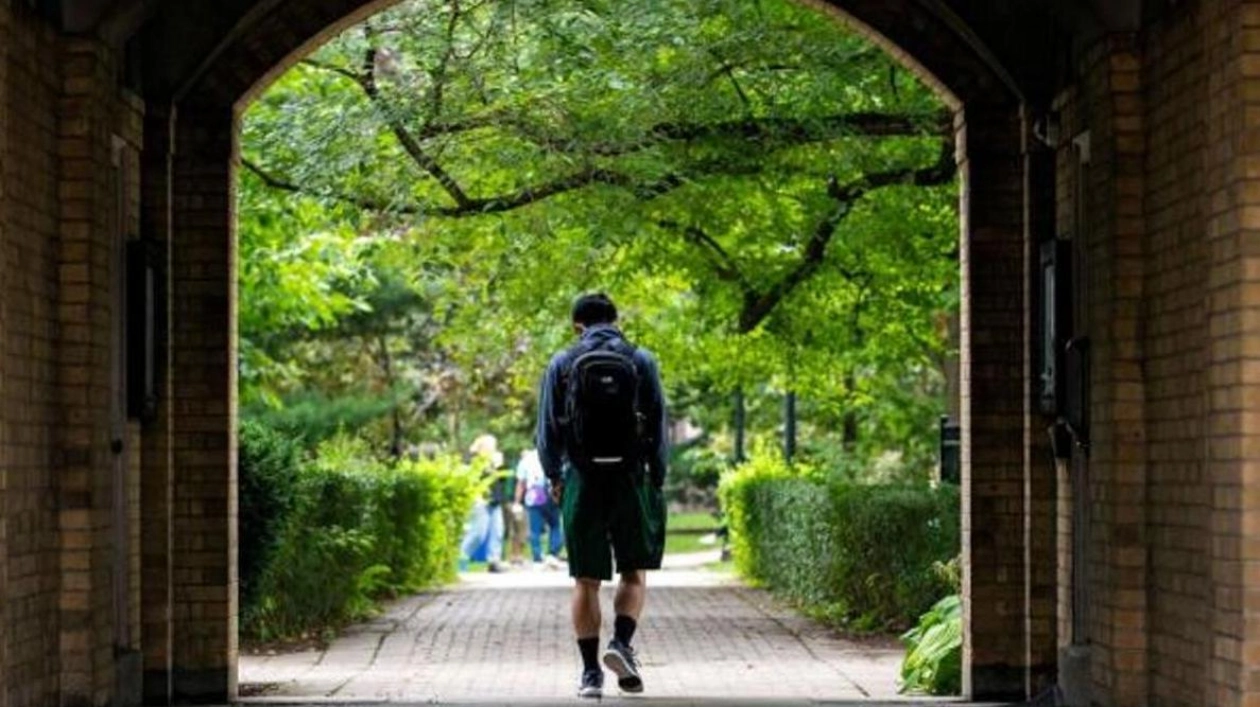As a significant number of students from the UAE gear up to head to Canada for higher education this fall, many are still waiting for their visas, and some have already encountered rejections. Education consultants note that this year, more students from the UAE are opting for smaller provinces due to heightened competition in larger provinces like Ontario and British Columbia. This shift comes in the wake of the Canadian government's recent decision to reassess the cap on international student work permits, with the 2024 cap set at approximately 360,000, down from about 560,000 last year.
Education consultants highlight that Canada has seen the swiftest growth in international student numbers among other countries, with a rise of over 30 percent in 2022 and more than 27 percent in 2023. Chafic Mekkaoui, an Education Consultant at Hale Education Group, explained that the 35 percent reduction in study permits for the upcoming year has raised concerns among students. However, he anticipates a surge in applications to smaller provinces and a broader selection of universities. The competition for spots in Ontario, British Columbia, and Quebec is expected to intensify.
Mekkaoui also mentioned that the two-year plan modifies the post-graduation work permit rules, allowing graduates from Masters or shorter graduate programs to apply for a three-year work permit. Previously, the duration of the PGWP was linked to the length of the study program. Despite these changes, Canada remains appealing to students from the UAE due to its affordability, lower tuition fees compared to other countries, and high quality of life.
According to the Times Higher Education's World University Rankings 2024, 31 Canadian institutions are among the world's best. A recent study revealed that 60 percent of international students who were employed during or after their studies became permanent residents within ten years of obtaining their first study permit.
Consulting services also pointed out the recent crackdown on flagpoling, a legal process where individuals exit and re-enter Canada to access same-day immigration services. This move is part of Canada's broader strategy to manage international student numbers and ensure sustainable population growth. Canadian and US authorities have now restricted the number of ports of entry that can be used for this purpose.
Prabhjeet Singh, CEO of Glinks International, clarified that this policy is not directly linked to the two-year temporary cap on international students. He emphasized that these changes are aimed at streamlining immigration processes and ensuring students are well-informed about pathways to post-graduate work permits.
For students aiming to work in Canada post-graduation, graduating from a designated learning institution with eligible programs is crucial. Graduates from a four-year bachelor’s degree or a master’s degree program can apply for a PGWP valid for up to three years. Singh noted that these directives encourage UAE students to plan their education more meticulously.
Despite recent policy changes, Canada continues to be a popular destination for UAE students due to its world-class educational institutions, multicultural environment, and strong career prospects. However, students are now more cautious and seek comprehensive guidance to navigate the new regulations.
Each year, UAE students submit nearly 9,000 university applications to Canada, in addition to applications to other destinations. International students represent 2.5 percent of all residents in Canada, with Ontario having 3.5 percent of its population as international students.
Despite the overall success, some students from the UAE have faced visa delays and rejections. Amna Hashmi, a 29-year-old teacher, was denied a visa for a Post-Graduate Certificate at Queen's University. Although disappointed, she remains focused on improving her career prospects. Hikmat Dardari, originally from Syria, had a different experience, successfully obtaining Permanent Residency through the Investor Program.
Nathan Britto, who is headed to the University of New Brunswick, expressed relief at receiving his visa quickly, contrasting with the experiences of his peers. He plans to focus on his education and is undecided about staying to work in Canada post-graduation.






